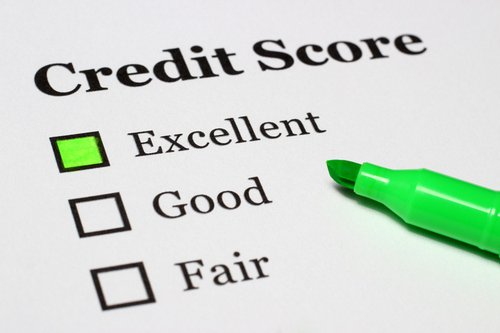
KNOW YOUR CREDIT SCORE
 No matter what your financial standing, it’s important to know your credit. That means you should be familiar with every aspect of your credit, including how your credit score is determined, what goes into your credit report and knowing how to spot the most common errors that tend to somehow leak onto your credit report. You should also know what a credit check is and how it can affect you. Here are some helpful tips so that you can lead a credit savvy life and be wise about your credit reputation.
No matter what your financial standing, it’s important to know your credit. That means you should be familiar with every aspect of your credit, including how your credit score is determined, what goes into your credit report and knowing how to spot the most common errors that tend to somehow leak onto your credit report. You should also know what a credit check is and how it can affect you. Here are some helpful tips so that you can lead a credit savvy life and be wise about your credit reputation.
What is a Credit Report?
A credit report is information on your credit history. Whether you are a seasoned veteran who has had good credit for many years or you just got your very first credit card, you have a credit history. Even if you don’t have a credit card at all, financial institutions have some data on your borrowing and spending habits.The information is reported to credit reporting agencies by lenders who have given you credit. Your credit report is also used to create a credit score to you.
What is in a Credit Report?
A credit report includes all types of credit you use, how long your credit accounts have been open and whether you have paid off past debt on time. It also lets lenders see how much credit you have used over against how much has been made available to you, and if you have sought additional sources of credit. Generally, lenders get a pretty good view of your credit history from your credit report. Also included are details like your address, whether you have filed for bankruptcy and if you have been arrested or sued.
How is a Credit Score Determined?
A credit score is determined based on the way you use credit and on how much of a credit risk you are according to your usage. The numerical scale rates you on how likely you are to pay off a future debt on time. The score also takes into account your credit utilization. Generally, when you have credit, you are expected to use only 30 percent or less of your credit limit. For instance, if you know your credit limit is $1,000, you would be wise to use up to $300 of that to meet the appropriate credit utilization amount. Making purchases greater than 30 percent of your limit can negatively affect your credit score, even if you pay bills on time and in full. However, if you make purchases that come to 30 percent or less of your credit limit, your score can improve.
Other aspects that can determine your credit score are late payments, bankruptcy, a court judgment and debt collections. A credit check can also affect your score. This is when a hard inquiry is done by a credit card issuer or lender when you are attempting to open a new credit account or apply for a loan or a mortgage.
The Importance of Reviewing Your Credit Reports
You have access to three credit reports every twelve months from each of the major credit bureaus, Experian, Equifax and TransUnion. It is a good idea to request each of the reports annually to review for any errors. Errors on your credit reports can adversely affect your credit score and reputation, so if you spot any, it’s wise to immediately report them so that they can be deleted. You have the right to have a complete and accurate credit report, no matter what your credit reputation.
Common Errors to Look for in a Credit Report
Sometimes, there is an honest mistake made with a credit report, such as your information being confused with someone else. If you have a common first and last name, it’s possible that a credit reporting agency can make a mistake by mixing up your file with another person who shares your name or whose name is extremely close to yours.
However, there are also issues of fraud and identity theft of which to be aware. If there is anything glaringly wrong included in your credit report, it might mean you have become a victim of this crime. Go over your report very carefully and report all errors.
Outdated information can easily be included in your credit report, as can information about a former spouse. After your divorce, you may notice your ex-spouse’s information still appearing on your report if you once shared a credit card or other type of credit account.
What to Do if You Find Errors in Your Credit Report
If you spot any errors in your credit report, it’s important to work to have the mistakes corrected. Although you can use a credit repair company to do so, you can actually fix errors by yourself. You can write a dispute letter to send to the credit reporting agency and provide documents that support your claim of errors.
Credit can be tricky, especially rebuilding a bad credit score. Your credit report can be a very useful tool to help you map out a plan toward being debt free. Contact Georgia Debt Relief today with your questions and concerns.